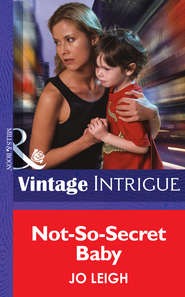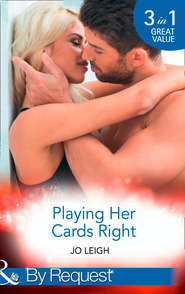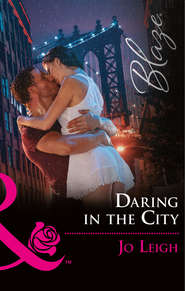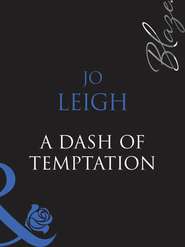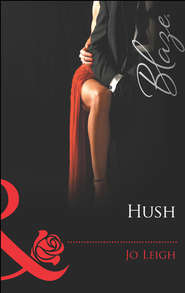По всем вопросам обращайтесь на: info@litportal.ru
(©) 2003-2025.
✖
Ms. Taken
Автор
Год написания книги
2019
Настройки чтения
Размер шрифта
Высота строк
Поля
“I’ve been to the restaurant in SoHo.”
“You have?” Darra cleared her throat, but from her it sounded sophisticated, sexy even. “How did you like it?”
“It was nice. Very, uh, modern.”
“Good. Now, I can mark you down as a definite?”
“I think so. What’s the date?”
“December 23. It’s a Sunday.”
Jane had flipped the pages on her calendar to see that she had nothing jotted on the twenty-third. Or the whole week, for that matter.
“And Janey?”
“Yes?”
“Maybe you could, you know, ask your boss if he wanted to come, too. As our guest, of course.”
A feeling as familiar to her as breathing hit her chest: disappointment, dark gray and sticky, her old friend, her childhood companion. It was as if she were full to bursting and empty, both at the same time. Merry Christmas, Janey. “Mr. Warren has a very busy schedule,” Jane said, her voice not even hinting at her condition.
“But couldn’t you even ask?”
“Why?”
“Because…because he’s just the kind of clientele we’re looking for. If he likes it, maybe he’ll come back. And bring his friends.”
“He won’t.”
“He won’t what?”
“Be able to come. I just looked at his calendar. He’ll be out of the country.”
“Damn it.”
“But I’ll tell him about it when he comes back.”
“Thanks,” Darra said, and Jane could practically see her patented pout. It was a doozy of a pout, and it had made her sister a household name. Gorgeous Darra, whose face haunted Jane from billboards all over Manhattan.
“Put it there.”
Jane almost asked her sister what she was talking about, but then she realized the comment hadn’t been addressed to her. It was probably for Darra’s boyfriend, Guy. He pronounced it “Gee,” like some French baron or something when Jane knew perfectly well that he’d been raised in Omaha, Nebraska. Oh well. Guy pronounced “Gee” went better with Darra, whose real name was Darlene.
“I gotta run, Janey. I’ll talk to you soon.”
“Bye,” she said, but the phone cut her off. It wasn’t that Darra meant to be mean. She really didn’t. She just had this rather myopic view of the world. Copernicus be hanged; Darra was the center of the universe. At least when she wasn’t around their other sisters.
The remarkable Dobson girls. Jane’s eldest sister, Pru, had just finished a triumphant concert series with the Boston Symphony. Just days ago Jane had seen a little piece on her in the Times, about how her precious violin had been stolen. It turned up the next day, and Jane would bet the price of the Stradivarius that Pru had lost the damn thing. She was notorious for misplacing stuff.
Then there was Felicity. Two years younger than Pru, and already on the USA Today bestseller list. “The novelist of our generation,” according to People magazine. All Jane knew was that Felicity hadn’t answered her last three letters.
Darra came next. She’d started modeling at fourteen, and then there was that Sports Illustrated cover and she’d become a supermodel. As if that was a word.
Three incredible, beautiful, talented girls, all in a row. And then came Jane. Tone-deaf Jane. Moderately attractive Jane. Mediocre Jane, who was best known in New York society for not being her sisters. When she was mentioned, someone inevitably mentioned her hats.
Her hats.
With a deep sigh, Jane let go of her familial thoughts and turned to something far more interesting. Holly Baskin. It was a puzzle worthy of a woman like herself. Who was this Holly Baskin? Why didn’t Charles have her phone number? What part had she played in his past? Was she beautiful? Of course she was.
Jane typed the ad, printed it, took it back to her desk and decided it was all wrong. Holly wouldn’t be intrigued enough by such a sterile request. What it needed was some pizzazz.
Her fingers flew across her keyboard as she typed and deleted and typed and deleted until she came up with the perfect ad. Not too much, not too little. Holly wouldn’t be able to resist.
The phone book came out, and Jane called to get the address and hours for Attitudes magazine. Of course, she’d thought about placing the ad via phone or e-mail, but that was too impersonal. This was for Charles, and it had to be done exactly right. In person. Besides, she hadn’t decided which ad to use, which was a major big deal.
After she hung up, she called the switchboard, alerting them to the fact that she would be an hour or so late tomorrow morning. And then she took both ads, his and hers, and put them in her purse. There was the afternoon to get through. She had some reports to type up and some filing to do. But first, she picked up her notepad one more time.
Holly Baskin. She didn’t sound at all like someone Charles would love. But what if…?
AS SHE WAITED, Jane read her ad, then his ad, then her ad again. Hers was poetic, sincere, moving. His was bare and cold and clinical. She pictured herself as Holly Baskin, seeing the ad for the first time. The one in her left hand—the one Jane had written herself—would pique her interest instantly. No way would she overlook it. But his ad? No romance whatsoever. No promise of a sparkling future.
It was Jane’s turn at the desk. The woman behind it didn’t seem to like her job very much. She hadn’t smiled once, barely spoke, and her brow seemed permanently furrowed.
“I’d like to place a personal ad, please.”
The woman frowned. “You have it written out?”
Jane nodded, knowing she had to make her decision now. This instant.
“Well? I haven’t got all day.”
Jane knew her ad would bring Holly back into Charles’s life. She knew it with absolute certainty.
She handed the woman the other ad.
She wasn’t stupid, for heaven’s sake.
THE DOW WAS DOWN five points and Charles had a headache. One was not caused by the other. It only seemed that way.
It was eleven-thirty. Maybe he should take some aspirin and call it a night. He eyed the paperwork strewn across his bed. If he quit now, he’d just have more to do in the morning.
He decided to go with the aspirin, however. Putting his lap desk to the side, he headed for the bathroom. Fourteen million for the Riverside complex, and that was just for starters. The architectural firm was a good one, the prospectus top-notch, and yet there was something about the deal that bothered him. Whatever it was, it had better come to the fore soon. The papers were due on the twenty-first.
He turned the light on in the bathroom and opened the medicine cabinet. The aspirin bottle shared space with antacids: chewable, caplet and liquid form. The rest of the cupboard was bare. The women in his life were always trying to fill this particular cabinet, and Charles had disposed of a plethora of miracle herbs, god-awful colognes and even the occasional feminine hygiene product. Finally, it appeared that his housekeeper had gotten the hint. And since she was the only woman currently in his life, he had his agreeably spare cabinet back.
He took three aspirin, turned off the light and went back to bed. MSNBC was still on, but it wasn’t financial news. It took him a moment to get settled, then he started rereading the Riverside deal.
Not five minutes later, the phone rang. Charles sighed. There were only two people in the world who would call him at this hour. David, or his mother calling from the cruise ship. He hoped it was David.






